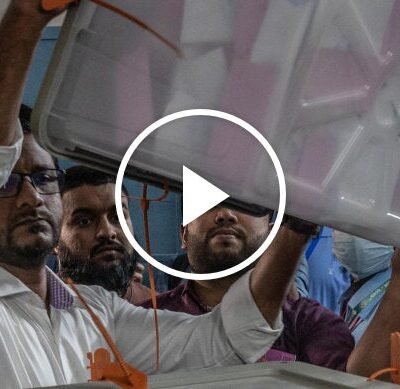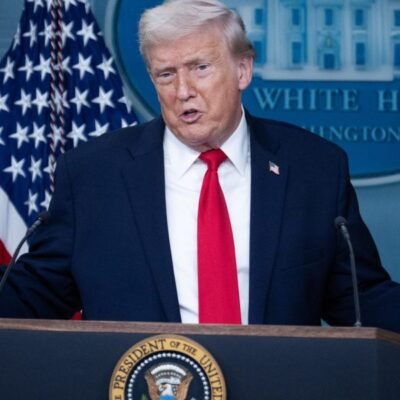Can tattooing’s artistry survive the emergence of generative AI (GenAI) innovation? And what lessons does this hold for other industries navigating the blend of creativity and technology?
When I was in Florida during my winter break, I got a new tattoo. After some conversation back and forth about the ideas I had, we agreed on the design, he created the stencil, and he got to work.
We began talking about my profession and I mentioned that I work in AI Ethics. Curious, I asked for his thoughts on AI in tattooing. To my surprise, he revealed that a large portion of my tattoo had actually been designed using AI.
How AI is used in tattooing
Like many creative areas, the tattoo industry is experiencing the ripple effects of AI adoption. Artists use GenAI tools to streamline the design process, turning what used to take hours into minutes.
My artist explained how AI has been a game-changer for him, making it much faster to create stencils. He confirmed that what used to take hours can now be done much quicker, letting him focus on the tattooing itself. However, he was clear that he doesn’t use the exact designs provided by the AI image generator; he constantly adjusts them to ensure they will work well as tattoos and look good on the skin.
“My favorite thing about using AI as a tool for my art definitely has to be the head start it gives,” my tattoo artist Matt Stone said. “Being a creative, you often go through a lot of wild rough drafts before you find a composition you really like and AI just helps you find that so much faster, so you will have a lot more time to work on stylizations and details of your piece.”
He compared it to how tattooing started in the U.S., with American traditional designs. Back then, clients picked from a small set of designs, and the focus was on applying the tattoo well rather than creating something unique. He said AI helps similarly save time while allowing for creativity and skill in the final tattoo design.
A split in opinions
While we talked, another artist in the shop voiced a very different opinion. He felt that using AI in tattooing takes away from the art. He argued that tattooing is all about the artist’s unique creativity and skill, and relying on AI could devalue the craft. This showed me how divided people in the tattoo industry are about AI: some see it as a helpful tool, while others think it undermines the art.
“I believe AI can be a very helpful tool … [to]recreate new references for our visual projects [but]humans have a tendency to rely on things that make [us]comfortable and it’s very clear how lazy we have become,” said tattoo artist Rene Benitez. “If the intention of [AI’s] use is to minimize or remove all human effort, then what essence is left? What part of us is still alive in the creation process? … It’s just plain embarrassing, and… people are drawn to it because it removes the actual labor needed in order to create [art]; the part no one likes to do, the actual labor.”
This debate highlighted a larger tension that echoes across many creative industries. Writers worry that generative AI text may devalue human storytelling. Musicians wonder if AI-composed songs lack soul. Designers question whether machine-created art has the same depth as human-made pieces. In every case, there’s a split: some see AI as a tool for empowerment, while others view it as a threat to the very essence of their work.
My experience with AI and tattoos
This wasn’t my first time experiencing AI in tattooing. About two years ago, I couldn’t find references for my tattoo idea, so I used MidJourney to generate some images. I took those images to my local artist, clarifying that I wanted him to design something original but use the AI references as inspiration.
These were the references I created using MidJourney and brought to my tattoo appointment:

And this was my final tattoo design – and I love it:

It helped me convey what I was looking for to the artist and made me feel more confident that he knew what I wanted. The process worked well for me, though interestingly, I later learned that this artist was strongly against AI in tattooing.
What does this mean for creativity across industries?
These experiences have made me think about how different artists, regardless of their medium, see GenAI affecting their industries. Some artists find that AI speeds up their work and lets them focus on the most enjoyable parts. Others worry it diminishes the value of what they do and could lead to tattoos becoming less original or even cheaper over time.
The broader implications are worth exploring:
- Efficiency vs. originality: Will AI lead to faster production of more unique designs or create a market of similar ideas?
- Skill evolution: As AI takes over certain parts of creative processes, will artists focus on refining their application skills, or will the craft evolve into something new?
- Access and opportunity: Could AI tools democratize creativity, allowing more people to explore artistic professions, or will they threaten the livelihood of traditional artists?
These questions matter beyond tattooing. Industries are navigating similar waters from graphic design to architecture to software development. AI tools are already transforming workflows, raising questions about the balance between human input and machine output.
What’s next for AI in tattooing?
The future of AI in tattooing – and creative industries as a whole – is uncertain but exciting. Will we see more artists using AI to push the boundaries of their creativity? Will the industry face a backlash, with purists rejecting these tools in favor of traditional methods? Will tattoo artists be expected to use AI to keep up with demand? Only time will tell.
For me, the most important thing is the artist’s skill in applying the tattoo. I don’t mind if they use AI to design my tattoo if the final product is absolutely stunning.
What’s your take?
What do you think about AI in tattooing or other creative fields? Does it make things easier/better, or does it take away from the craft? Whether you’re an artist, a professional, or just someone curious about how technology reshapes industries, I’d love to hear your thoughts.





